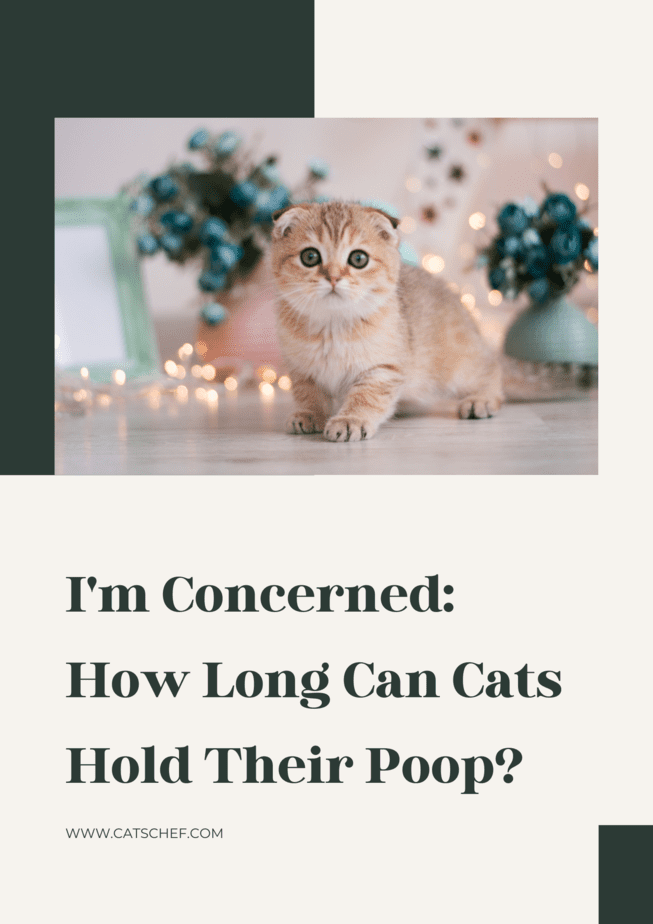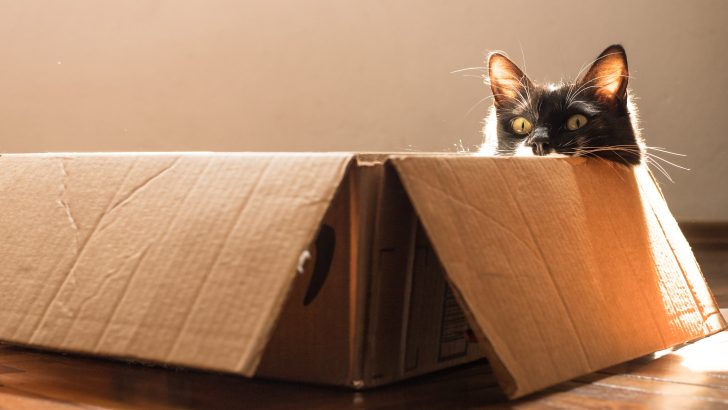How long can cats hold their poop, you ask? I never thought I would know about a cat’s bowel movements as much as I do. But, I have my own Mrs. McFluffer to thank for that! She went through her share of stomach upsets and questionable constipations growing up.
And, as I dealt with her defecation problems, I learned that I loved her unconditionally (regardless of what the naysayers and cat haters had to say about my relationship with her). How, other than that, would you explain the fact that I suffered through an endless cycle of scents I wouldn’t wish upon my worst enemy?
Come on, cat food smells bad (no matter how hard you’re trying to convince yourself that the combination of tuna and chicken liver sounds delicious).
Cat pee somehow gets everywhere and leaves you wondering whether you’ve forgotten one of your gym socks under the sofa (or the table, the bed, or the TV…). Cat litter boxes are a nightmare (and nobody dares say they aren’t some form of torture).
But, even though I despised dealing with Mrs. McFluffer’s pungent ventures, I loved that little stinker more than words can say.
And, I didn’t mind living in an apartment that reeked for most of the day as much as I minded those moments when it didn’t. Because that meant she was constipated and (probably) under the weather.
Of course, I spent hours and hours researching how long cats can hold their poop (hoping that was the reason why she wasn’t pooping). So, to prevent you from going through the same thing, I’m bringing you everything you need to know about your cat’s pooping escapades. Take a peek!
How long can cats hold their poop?
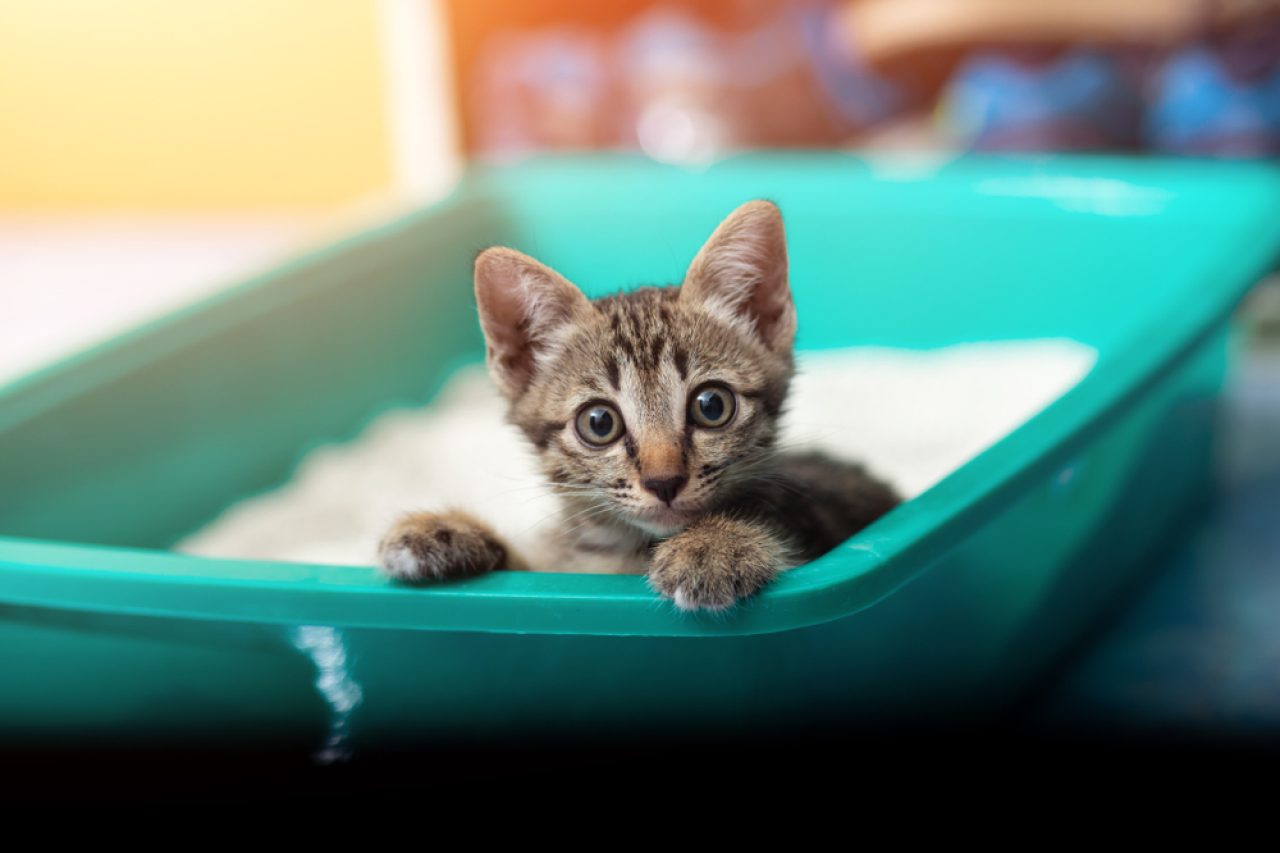
Starting with a bang, cats should poop at least once a day. Now, there are a bunch of factors that might affect the number of times your kitty visits her litter box. These include age, hydration levels, nutrition, physical activity levels, and lifestyle.
But, for the most part, a healthy cat should poop once a day, and pee three to five times a day.
For the sake of illustrating what a healthy cat shouldn’t do, Mrs. McFluffer used to have moments when she would spend most of her day in and out of her litter box (and we knew that was a sign to take her to the vet).
Therefore, a cat shouldn’t hold her poop for more than two days. Anything longer than two days would communicate there’s something wrong. Whether she’s not getting the amount of fiber she needs or she’s dealing with a health condition, your fluffer shouldn’t hold her poop for more than two days.
More often than not, cats that don’t go to the bathroom for 24+ hours are constipated.
Now, cats can experience constipation for a bunch of different reasons (which don’t have to be health-related). And, you should schedule an appointment with your veterinarian the moment you notice something’s off.
We don’t mean to scare you. But, when cats don’t poop for days the contents effectively back up and cause a blockage. And, naturally, such occurrences might cause other health complications when left untreated. How dangerous can holding the poop be for a cat, then?
How dangerous can holding the poop be for a cat?
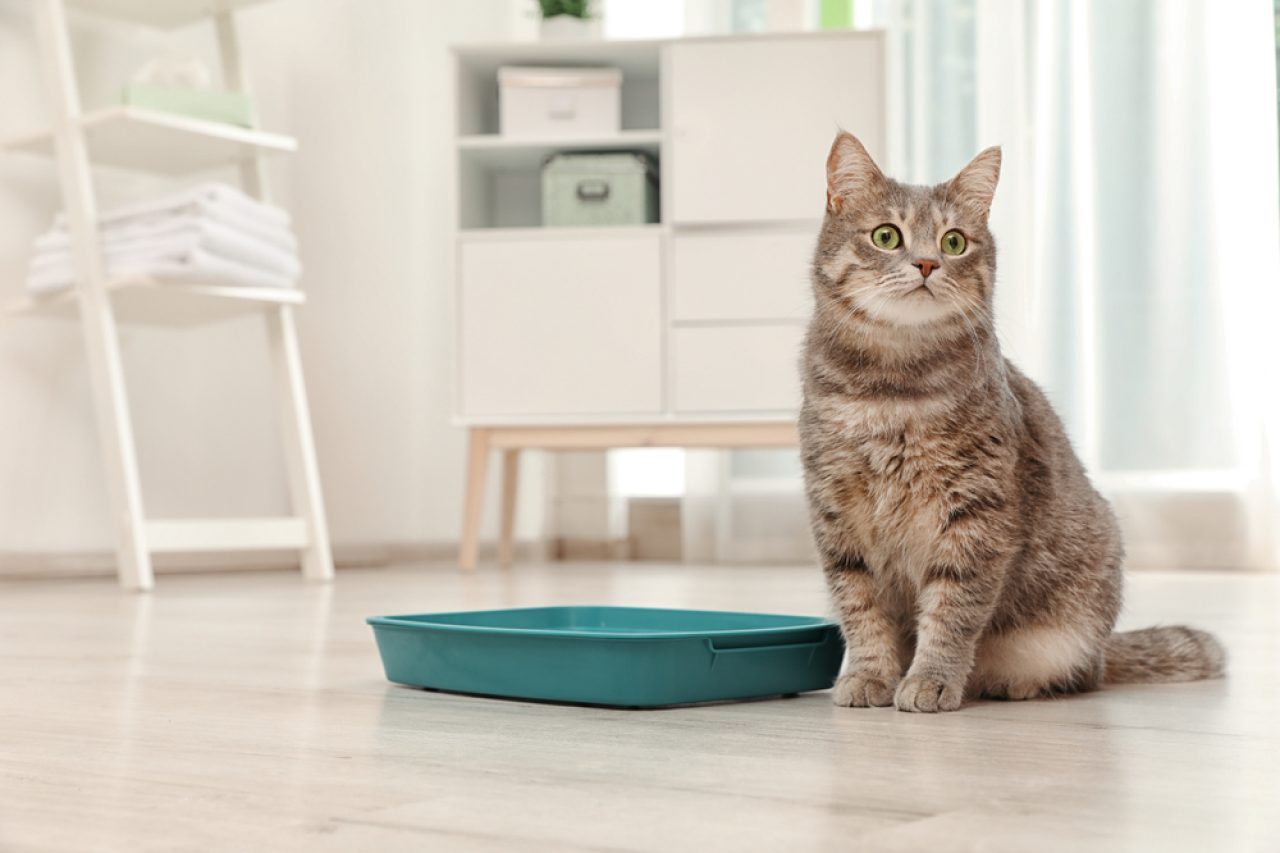
Very dangerous, to be completely honest with you! We’re not trying to freak you out (more than you’re already freaking out). But, you should be aware of the ramifications that might occur when your fluffer keeps her litter box at a paw’s length.
We’re not saying she should go all the time. However, constipation doesn’t do anything pawsitive for her and should be addressed ASAP. Now, different types of constipation could help you figure out what you’re supposed to do when you notice your mouser doesn’t go potty as much.
1. Constipation
Here’s a chore nobody wants to do. Observe (and analyze) your cat’s sand every day after she does what needs to be done. What’s left there should be brown (dare we say, chocolate brown?), well-formed, and sausage-like. But, anything that’s different from what we described might mean something’s wrong.
For example, poop that’s lighter, softer, and mucus-like might mean your four-legged friend’s dealing with GI problems and diarrhea.
Chances are, she munched on something she shouldn’t have. Raw chicken could have infected her with salmonella (which would have similar symptoms). Milk and dairy products could have given her lactose overload (which would also have similar symptoms).
On the other hand, hard, dry, and rugged poop means she’s dealing with constipation. She’s not hydrated enough. She’s not eating enough fiber. And, she’s ready to go to that veterinarian appointment right now.
2. Obstipation
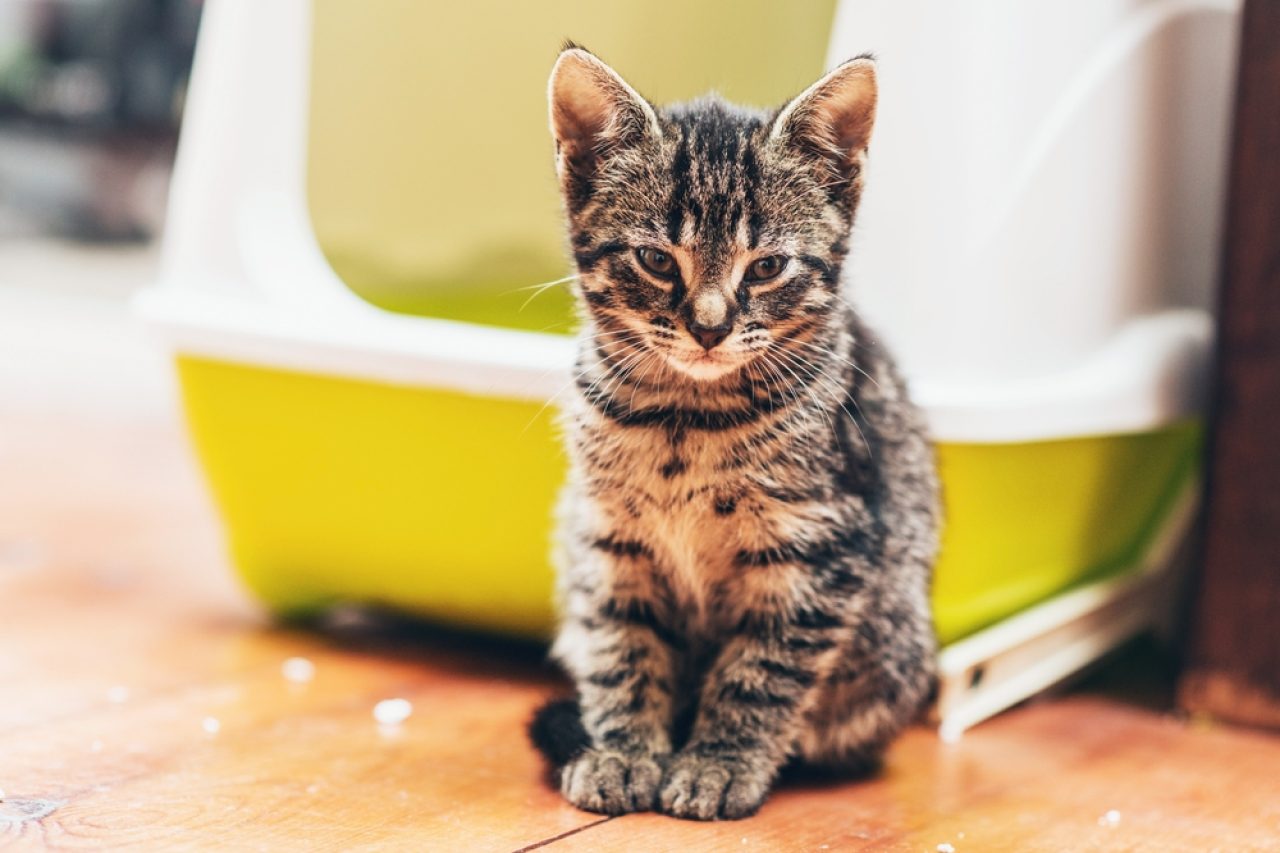
We’re moving on to something a little worse than a regular case of constipation. While these two might sound similar, there are levels and levels of aftereffects keeping them apart. Whatever the case might be, obstipation happens when the poop blocks the colon and becomes compacted.
Some of the most common symptoms (other than your cat holding her poop for days on end) are hard droppings, minuscule (and infrequent) droppings, decreased appetite, pressure while pooping, and vomiting.
Unfortunately, constipation seems to be one of those conditions that can lead to complications and death when left untreated. Contact your veterinarian the moment you notice any of these symptoms or suspect something’s wrong with your cat’s bowel movements.
3. Megacolon
Last but not least, we have a chronic condition known as megacolon. As the name suggests, megacolon seems to be a large (three to four times larger than normal), stretched-out and weakened colon.
And, to make matters worse, a colon that’s affected by the condition gets packed up with dry, hardened feces.
As you might have guessed, such a condition causes an enormous amount of stress on your four-legged friend. So, she has to deal with a tremendous level of pressure and discomfort. And, her colon can’t even get rid of those “cemented feces” without tearing and causing other health problems.
Cats dealing with megacolon need professional attention and might have to deal with the same condition on more than one occasion.
Make sure you schedule regular veterinarian checkups for your cat, given that she’s had problems with megacolon beforehand.
How long can cats hold their pee, though?
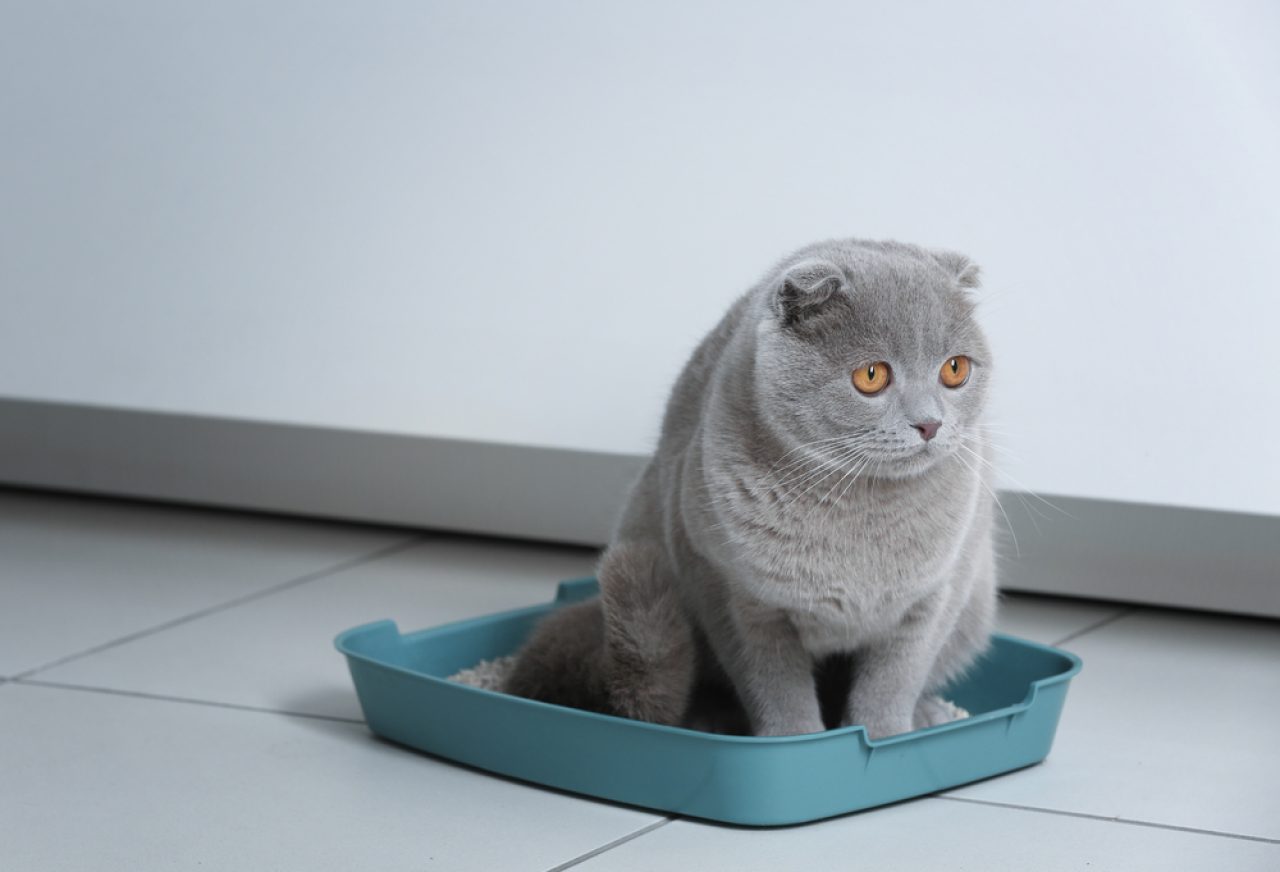
We can’t discuss the “how long can cats hold their poop” question without, at least, touching upon the number of days they can go without peeing.
As a matter of fact, we might not even be talking about days. Cats can get seriously unwell from failing to pee for more than twenty-four hours.
And, not peeing for forty-eight hours (which seems to be how long they can go without pooping) can even have a deadly outcome.
Make sure your fluffer pees at least one to three times a day (even though she would be better off doing that even more often, depending on the amount of liquid she consumes).
That’s another thing to keep an eye on. Turns out your fluffy friend might not need to use the litter box as much when she’s not drinking enough water or eating enough wet foods.
But, on days when you’re keeping score of how many licks of water she’s gotten, make sure she’s getting rid of the excess.
Why do cats hold their poop?
Oh, there were times when that was the only thing running through my mind.
“Why do cats hold their poop? Why does Mrs. McFluffer play with my motherly emotions and steers clear of her litter box chores every now and then? What am I doing wrong?!”
Sure, there’s a myriad of things you, as a pet parent, can do to prevent your cat from getting constipated. But, there are as many things that aren’t under your control.
Sometimes cats straight up refuse to drink water because they don’t like the taste. And, you can’t necessarily replace their water with chocolate milk or orange juice, right?
Other times, cats deal with health problems and conditions you don’t even know the name of. But, there’s not much you can do about that. Other than, of course, contacting your veterinarian and providing her with the help she needs.
Turns out there are a bunch of reasons why your cat might be holding her poop, and we’re bringing you a couple to help you understand her better.
1. Because of dehydration
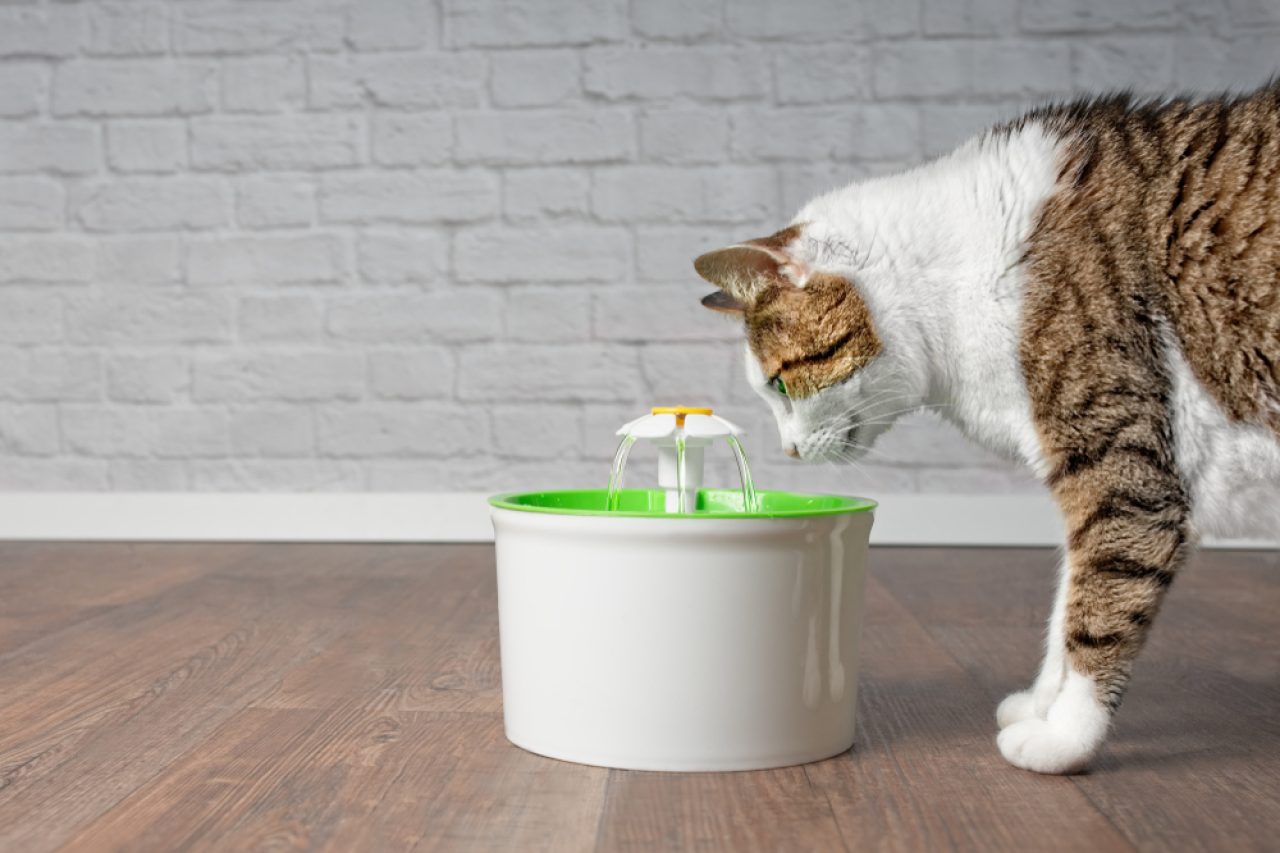
“Hmm, Mrs. McFluffer never drinks water,” that thought used to haunt me. There was something confusing about the fact that she ate pretty much everything (dry foods, wet foods, cat treats, and even Thanksgiving turkey). But, she didn’t feel the need to drink water.
Or, she did feel the need but didn’t want to wet her whiskers. Whatever her reasons might have been, she gave me headaches galore because she didn’t keep up with the hydration levels that were crucial for keeping constipation at bay. Therefore, your cat might be holding her poop because she’s lacking hydration.
Some of the most common symptoms of dehydration are weakness, depression, poor appetite, dry nose, dry mouth, and sunken eyes. Rehydrate your cat with chicken broth, tuna sauce, or gravy (without the seasonings) because she might not like the taste of water.
2. Because of a diet with a minuscule amount of fiber
Though that might sound strange, cats often have the problem of constipation because they don’t consume enough fiber. Cats are carnivores which means they require meat, animal protein, and animal-sourced nutrients to lead a happy and healthy life.
They don’t require fruits, veggies, and whole grains the same way humans do. They don’t even possess the enzymes necessary to break down and process most foods humans consume on a regular. And, that’s why they often don’t consume enough fiber – who’s fluffer eats a bunch of lettuce on a regular?
Now, most commercially available cat foods and cat treats do contain a considerable amount of fiber (because we know the role fiber plays).
But on the off chance that you don’t, fiber provides bulk to help food move through the digestive tract. Carrots, green beans, broccoli, spinach, and lettuce might be a great way for you to introduce more fiber into your cat’s diet.
3. Because of different health conditions
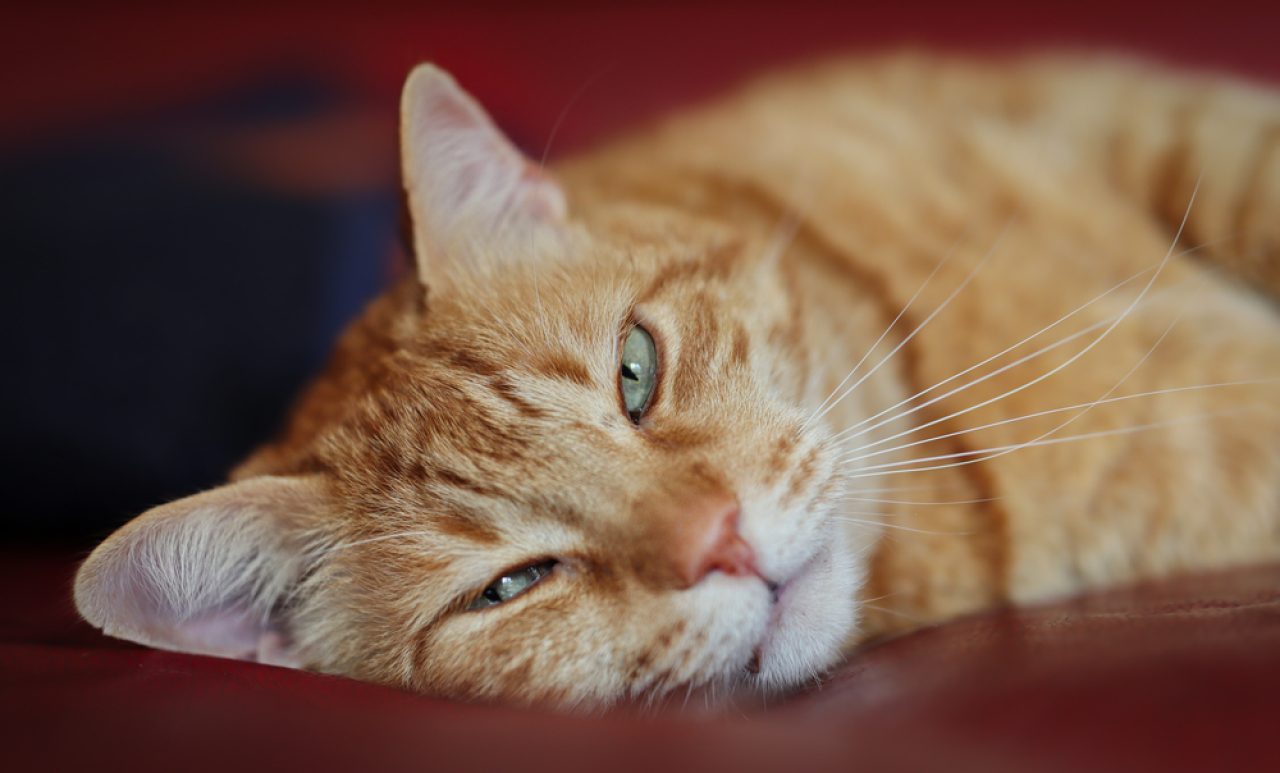
As a pet parent, you never want to hear your fluffer might be suffering from a health condition that was the reason for the harmless case of constipation she’s been dealing with. But, we can’t overlook the possibility your cat might have contracted something that’s been causing her to hold her poop.
Some of the most common diseases that might cause constipation are kidney disease, diabetes, and hyperthyroidism. Most of these diseases showcase a bunch of symptoms (other than constipation) which can push you to contact your vet before things get out of control.
React to anything that’s out of the ordinary – excessive thirst, excessive urination, weight fluctuations, matted and greasy coat (because she’s not grooming herself), and uncomfortable pooping.
4. Because they don’t like the litter box you bought them
Oh, who wouldn’t wish that was the reason why your cat might be holding her poop!?
With other, much more serious conditions, you would be relieved to know your fluffer’s acting up because she’s not a fan of the litter robot that’s been all the rage on TikTok lately. Who would’ve thought you could go wrong with something like that?!
But, there are times when cats literally experience health niggles and problems because they don’t like something. For example, cats sometimes stop eating because they don’t like the brand of food you’re feeding them. Or, sometimes they start overgrooming themselves because they don’t like the brush you’re using.
Therefore, your cat might be holding her poop because she doesn’t want to use her litter box. Whether that’s because her litter box appears dirty or because she doesn’t like the scent, she might not poop for as long as you don’t purchase her a different want. What a little diva!
What are some home remedies for dealing with cats holding their poop?
1. Water, water, and even more water
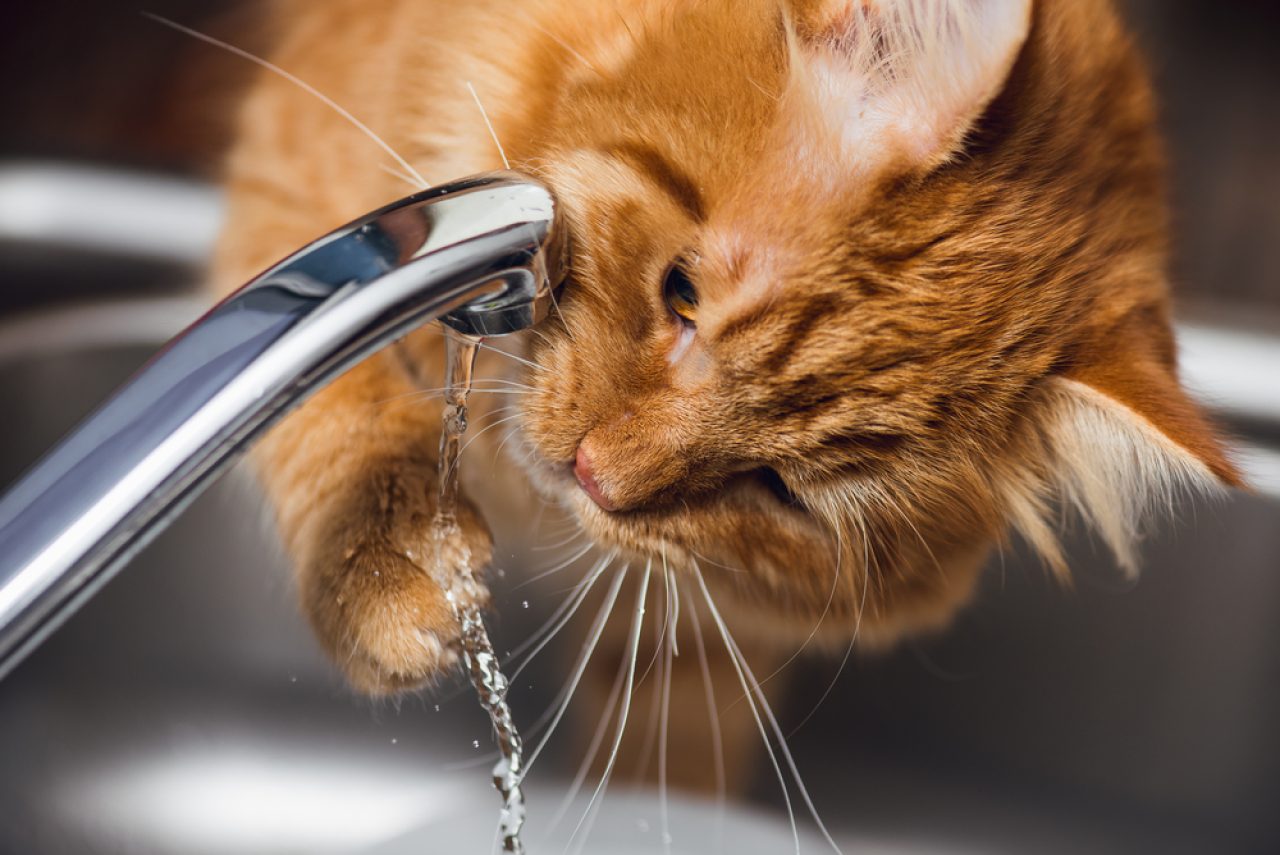
When you notice your cat’s been holding her poop for more than twenty-four hours, chances are you’re freaking out because you don’t know whether you’re the one to blame. Here’s the thing – cats hate water in more ways that the one you’re thinking about.
Sure, cats don’t like bathing. But, they don’t like drinking water because they don’t like the taste and they don’t like when it’s not moving.
Whether you can believe that or not, cats can actually taste the water because they have different taste buds. Because of this, sometimes they don’t like the way water tastes because it’s been sitting in the water dish for hours.
On the other hand, cats are very instinctual creatures. We shouldn’t even be surprised that they prefer moving water because that’s the type of water they would encounter outside.
Therefore, you need to find a way to provide your cat with a source of fresh, cold, moving water. And, water fountains seem to be the best way to go.
Catit Senses 2.0 Flower Fountain is a great option if you want to see how your cat is going to react to moving water. It’s affordable and does the job of providing your feline with a fresh source of liquid. It has three different flows so you can choose the one that works best for your pet.
2. Wet foods and treats
However, when your fluffer refuses to drink water (even out of the fountain), you need to figure something else out. And, we might have the thing for you. Wet foods and wet treats come with a bunch of water that can replenish your cat’s hydration levels and fight against constipation.
Such foods and treats often contain a bunch of fiber which van provides bulk to help food move through her digestive system. Commercially available foods and treats are a great choice for anyone who doesn’t have the time to go down the “homemade” path.
But, you can always make a batch of chicken broth, tuna sauce, or other types of gravy (without the salt, seasoning, and harmful ingredients) and save them for later. Whenever your fluffy friend needs a pick-me-up, give her a little bit of broth or gravy and she should be as good as new.
3. More foods packed with fiber
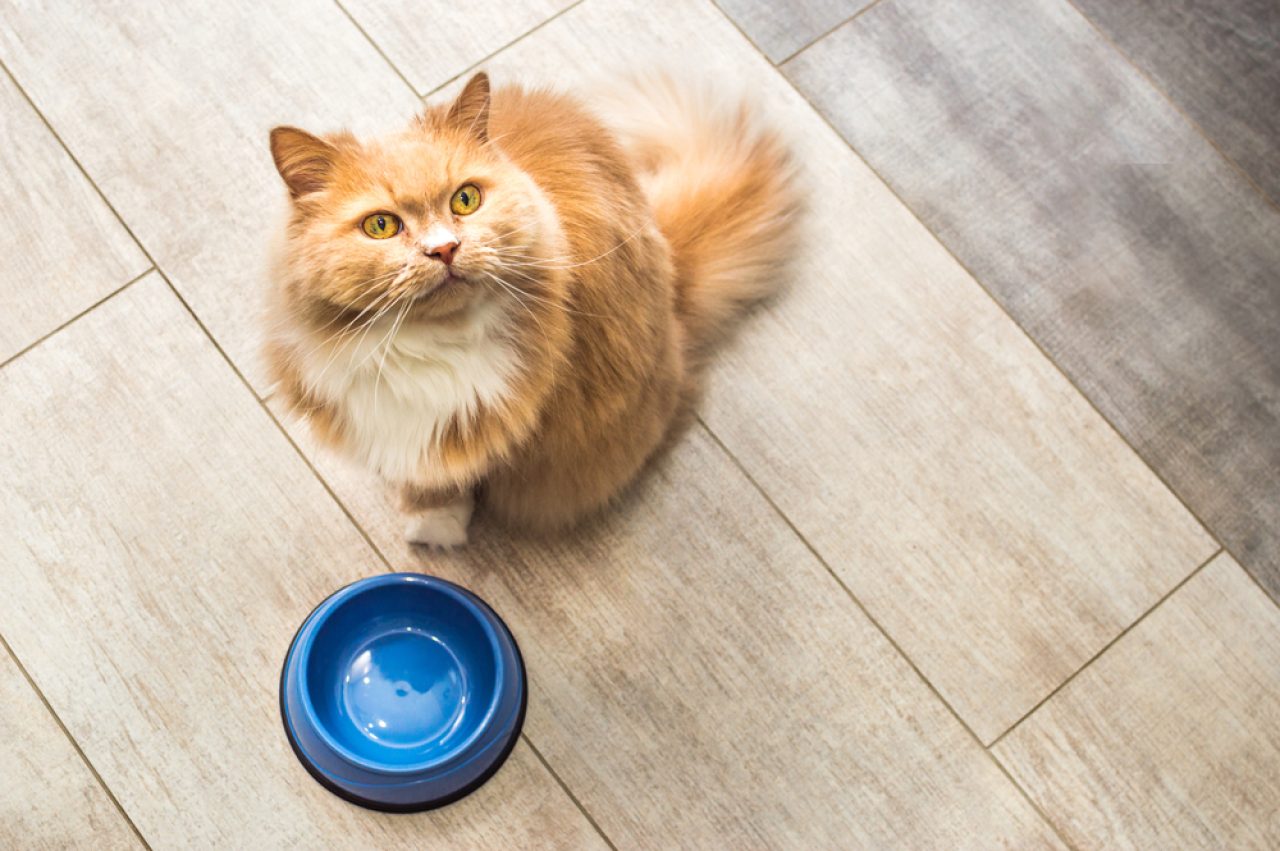
So, we already touched upon the importance of fiber for your cat’s digestive system. But, who’s to say we can’t repeat for good measure?! Fiber’s essential for your cat’s GI health and should be a regular part of her diet. Whether that’s through store-bought foods or fruits and veggies that are ASPCA-approved.
Whatever route you choose to take, make sure not a day goes by without your fluffer munchkin on at least one treat that’s beaming with fiber. Needless to say, you shouldn’t go overboard because you’re scared of constipation. Too much fiber can cause a bunch of other health problems.
Consult with your veterinarian and you should be on the right track.
4. Psyllium husk
And, while we’re on the topic of fiber… Psyllium husk is a great way for you to keep your cat’s fiber levels high (and appropriate for her needs). Phyllium husks are a form of fiber made from the crushed husks of the Plantago plant’s seeds.
So, such fiber expands and assumes a gel-like consistency that’s great for lubricating the GI tract and softening your cat’s poop (making the pooping process effortless and unchallenging). Consuming psyllium husk can help your cat with constipation and other digestive problems.
But, when your cat doesn’t seem to be holding her poop anymore, psyllium husk can maintain proper metabolic function, too. On the other hand, you shouldn’t add anything to your cat’s regular diet before you phone your veterinarian for advice.
However, these little seeds seem to be of great assistance whenever you need them.
5. Oil
And, we can’t forget about the fact that consuming oils (from time to time) can help your four-legged friend poop much, much better. Or, at least that’s what a lot of pet parents argue when they talk about different ways of dealing with their cat’s constipation problems.
Apparently, when you notice your cat holding her poop for more than twenty-four hours, you should add a couple of drops of castor oil or olive oil to her food. Both of these oils possess antibacterial and anti-inflammatory properties. Both of them, at the same time, soften and lubricate your cat’s poop.
Word of advice, though – don’t force these oils down your cat’s throat and don’t use them too often. Excessive amounts of oil can cause a bunch of health problems you don’t want to deal with. And, of course, consult with your veterinarian before you do any of these things.
